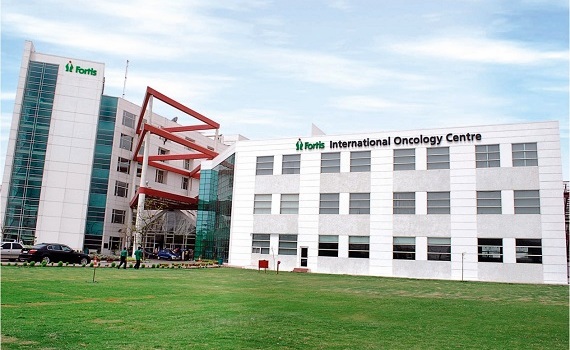Glossectomy Treatment in India
treatment
starting from
Introduction
Life is a series of challenges and obstacles, but some hurdles require a more significant leap to overcome. For individuals suffering from severe tongue-related medical conditions, one such challenge might be the option of a glossectomy. The term might seem daunting, but this life-changing procedure offers hope and a renewed quality of life for those who face specific conditions. In this blog, we will delve into the world of glossectomy, exploring its meaning, symptoms, causes, diagnosis, and treatment options, including the procedure cost in India.
What is Glossectomy?
Glossectomy refers to the surgical removal or partial removal of the tongue. Though it might sound extreme, this procedure is typically reserved for individuals with life-threatening conditions, severe injuries, or cancer that significantly affects the tongue's structure and functionality. The decision to undergo a glossectomy is undoubtedly challenging, but for those facing dire medical circumstances, it can offer a glimmer of hope for a better life.
Symptoms and Causes
The symptoms that may lead to the consideration of a glossectomy can vary based on the underlying condition. Some common symptoms include:
- Oral Cancer: Persistent and unexplained pain or soreness in the mouth, difficulty swallowing, white or red patches in the mouth, and unexplained bleeding may indicate oral cancer that might necessitate a glossectomy.
- Severe Injuries: Traumatic accidents or injuries can severely damage the tongue, affecting speech, swallowing, and breathing. In extreme cases, a glossectomy may be required to address the damage.
- Macroglossia: This condition causes an abnormally large tongue, leading to difficulties in breathing, speaking, and eating.
- Obstructive Sleep Apnea (OSA): In some instances, glossectomy may be considered as a treatment option for severe OSA when other methods have proven ineffective.
Diagnosis
The journey towards a glossectomy begins with a thorough diagnosis by a medical professional. To determine if a glossectomy is necessary, the following steps may be involved:
- Medical History: The medical professional will review the patient's medical history and inquire about their symptoms and concerns.
- Physical Examination: A comprehensive physical examination of the mouth and tongue will be conducted to assess the condition.
- Biopsy: If cancer is suspected, a biopsy may be performed to confirm the diagnosis.
- Imaging Tests: X-rays, CT scans, or MRI scans may be utilized to obtain detailed images of the tongue and surrounding structures.
Treatment: The Glossectomy Procedure
A glossectomy is a complex surgical procedure that requires the expertise of a skilled surgical team. There are two main types of glossectomies:
- Partial Glossectomy: In this procedure, only a portion of the tongue is removed, leaving enough of the tongue intact to maintain essential functions like speech and swallowing.
- Total Glossectomy: A total glossectomy involves the complete removal of the tongue. This procedure is typically reserved for cases where other treatment options have been exhausted, or the condition is life-threatening.
The surgery is usually performed under general anesthesia, and the extent of the procedure depends on the individual's specific medical condition. The recovery period can be challenging, and patients will require extensive support and rehabilitation to relearn essential functions like swallowing and speech.
Procedure Cost in India
One of the significant considerations for any medical procedure is the cost involved. In India, the cost of a glossectomy can vary depending on several factors, including the hospital, the surgeon's expertise, the extent of the procedure, and post-operative care.
On average, the cost of a partial glossectomy in India can range from approximately INR 1,50,000 to INR 4,00,000 ($2000 to $5500). For a total glossectomy, the cost may increase, ranging from INR 4,00,000 to INR 8,00,000 ($5500 to $11,000) or more.
Rehabilitation and Support
The road to recovery after a glossectomy is not an easy one, and it requires a multidisciplinary approach involving speech therapists, dietitians, and physical therapists. These professionals work together to provide comprehensive rehabilitation and support to help patients adapt to their new reality.
- Speech Therapy: Learning to communicate effectively after a glossectomy is a critical aspect of rehabilitation. Speech therapists play a vital role in helping patients regain speech clarity and articulation. They may introduce alternative communication methods such as sign language or assistive devices if needed.
- Swallowing Therapy: The removal of part or all of the tongue can significantly impact swallowing function. Dietitians and therapists work closely with patients to relearn safe swallowing techniques and may recommend modified diets to prevent aspiration.
- Physical Therapy: For patients recovering from severe injuries or cancer treatments, physical therapy aids in regaining strength, balance, and mobility. This aspect of rehabilitation is crucial for restoring independence and overall well-being.
- Psychological Support: The emotional impact of a glossectomy cannot be underestimated. Patients may experience anxiety, depression, or difficulties coping with the changes in their life. Counseling and support groups can provide a safe space to address these emotions and offer encouragement and understanding.
Looking to the Future
As medical research and technology continue to advance, the field of glossectomy holds promising possibilities. From refined surgical techniques to advancements in reconstructive surgery, the future of glossectomy presents the potential for even better outcomes and improved quality of life for patients.
Furthermore, with continued research in cancer treatments, early detection methods, and improved therapies, the need for extensive glossectomies might decrease. In cases where glossectomy remains necessary, ongoing advancements can enhance post-operative rehabilitation, providing patients with more effective support during their recovery.
Conclusion
A glossectomy is a life-altering procedure that involves the removal or partial removal of the tongue due to severe medical conditions, injuries, or cancer. While it might seem like a daunting prospect, it offers hope and renewed possibilities for individuals facing dire medical circumstances.
Understanding the symptoms, causes, diagnosis, and treatment options, including the procedure cost in India, empowers individuals to make informed decisions about their healthcare. Rehabilitation and support play a crucial role in the journey to recovery, helping patients adapt to their new reality and reclaim their lives.
The stories of resilience and courage from glossectomy survivors show that life after the procedure can be fulfilling and meaningful. Advances in medical research and technology continue to shape the future of glossectomy, offering even brighter prospects for patients facing this life-changing procedure.
How It Works
Need help in organizing medical travel to India?






